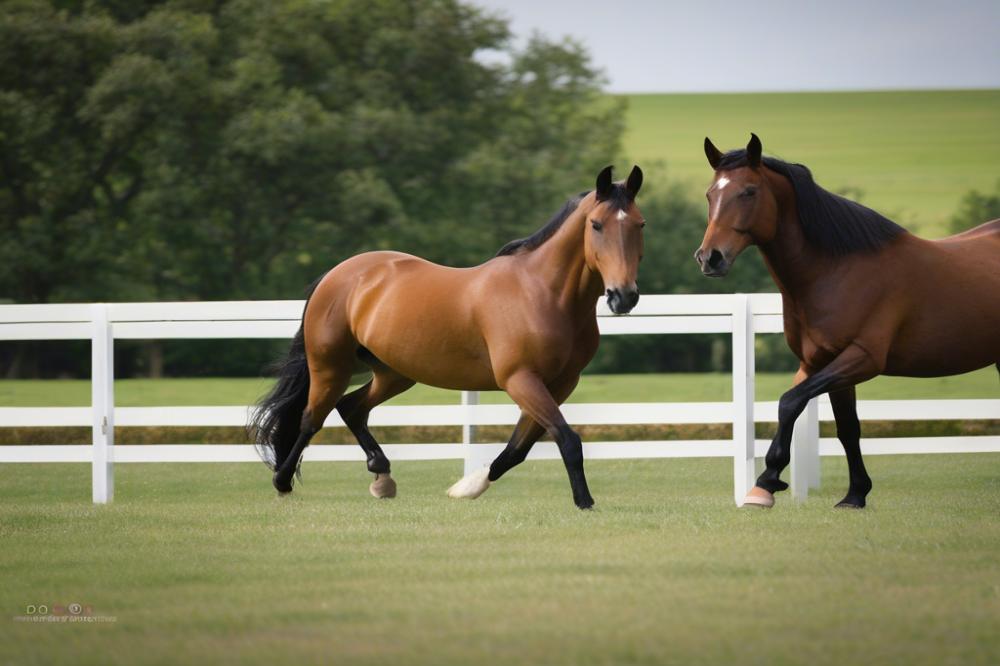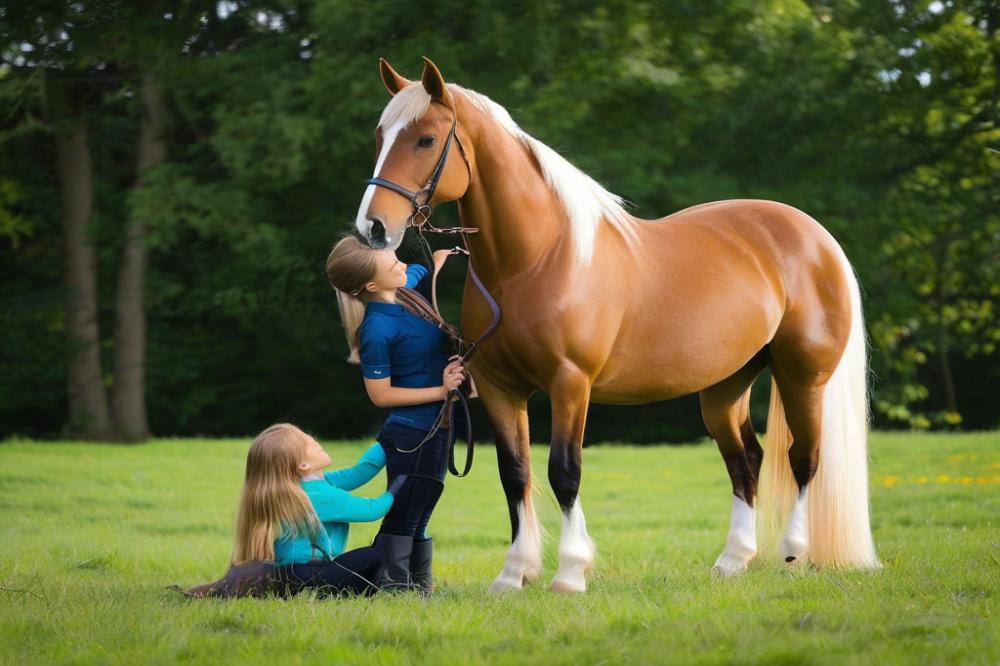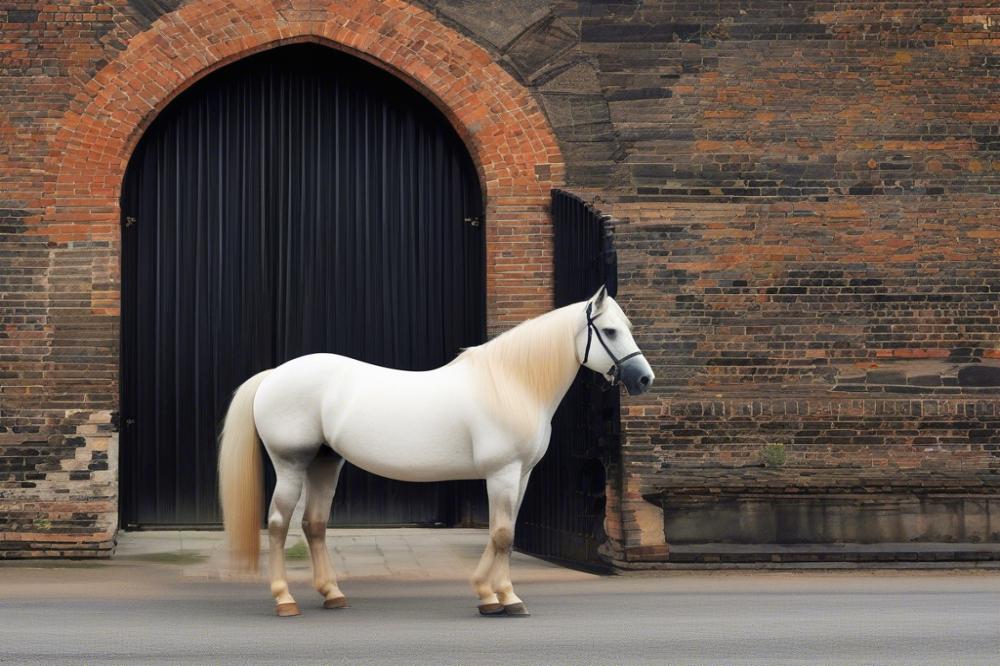Do Horses Like Humans?
Have you ever watched a horse frolic in a pasture, mane flowing in the breeze, and wondered what it was thinking? Horses are magnificent creatures that have shared their lives with humans for centuries. The relationship between these majestic animals and people is not just about riding or racing. It’s about emotions, connections, and understanding equine behavior on a deeper level.
Bonding with a horse can feel like finding an old friend in an unexpected place. Some folks claim horses have a sixth sense when it comes to our feelings. If you’re having a rough day, a gentle nuzzle from a horse can be more comforting than any pep talk. Understanding this bond is as valuable as knowing how to properly care for them or train them effectively.
It’s essential to delve into horse psychology to recognize how they perceive the world around them. They communicate through body language and vocalizations, but how do these signals relate to our emotions? Imagine how bewildering it must be for a horse when a human shows enthusiasm one moment and frustration the next. Movement and sound are their primary languages, and interpreting these correctly is critical for effective horse training.
A glimpse into the social behaviors of horses reveals a lot. These animals thrive in herds and establish complex relationships among themselves. Just as people have different personalities, so do horses. Some might adore attention and enjoy being around humans, while others can be shy or aloof. It’s like meeting the buckskin horse breed—their beautiful coats may catch your eye, but it’s their individual personalities that leave a lasting impression.
Beyond personality, emotions play a significant role in the lives of horses. They experience happiness, fear, and even anxiety, much like we do. Have you ever heard of selenium deficiency in horses? It can lead to some serious coping problems. By understanding their emotional needs, we can create an environment where they flourish. This understanding also helps in recognizing the signs of stress, ensuring that our equine friends feel safe and cherished.
In summary, horses and humans share a unique relationship built on mutual respect and understanding. The more we learn about their emotions and behaviors, the stronger our bond can become. After all, a horse that trusts you is like a partner with whom you dance—a little clumsy at times, but profoundly rewarding when it all comes together.
The Nature of Horses

Brief History of Domestication
Horses have been our companions for thousands of years. They first became domesticated around 4000 BC in the steppes of Central Asia. Originally, they were used for work and transportation. Over time, humans learned that horses could do more than just pull carts or carry loads. People began to train them for riding and even racing. This led to the development of different breeds, each with its unique traits. The bond between horses and humans has grown stronger throughout history. Understanding this bond is important to see how horse-human interaction flourished.
Social Structure and Herd Mentality of Horses
Horses are naturally social animals. In the wild, they form tight-knit herds. Each herd has its own dynamics, which include leaders, followers, and sometimes even mischief-makers. The strong bond with their herd helps horses feel safe. They often rely on each other for companionship and protection. When interacting with humans, horses may carry over this herd mentality. Riders and caretakers often become part of the horse’s “herd.” This relationship can have a profound effect on how horses behave and respond to us. Understanding horse psychology is key to successful horse training.
Understanding Horse Behavior and Communication
Horses communicate in ways that might not be obvious to us. They use body language, sounds, and even facial expressions. A flick of the ear can mean curiosity. A stomp of the hoof might be frustration. It’s important to pay attention to these signals. By doing so, we can better understand their needs and feelings. Animal emotions play a crucial role in this relationship. For instance, a horse that feels anxious may react differently than one that feels secure. Recognizing these feelings helps in horse care and provides a safer environment for both horse and human.
Training a horse requires patience and compassion. When we understand their behavior, we can teach them more effectively. A relaxed horse is usually more willing to learn. After all, who wouldn’t want to bond with a big, gentle creature? Unique expressions of affection often emerge in horse-human interaction, showing that they can indeed enjoy our company!
Evidence of Horses Liking Humans

Signs of Affection in Horses
Horses show their affection in several ways, often reflecting their feelings toward humans. Have you ever seen a horse nuzzle a person’s hand? That’s one way they express trust. When a horse leans against a human, it’s like a gentle hug, indicating comfort in their presence. Ears forward, a relaxed posture, and soft eyes also suggest a happy horse. Often, they’ll follow their favorite human around like a loyal dog. These behaviors showcase the bond that can form through positive horse-human interaction.
Research Studies on Horses’ Preferences
Several studies have tackled the topic of equine behavior and their feelings about people. One fascinating research project explored how horses respond to voices. They can actually recognize their owner’s voice and react differently than to strangers. This suggests they form preferences based on past experiences. Researchers have also noted that horses can feel stress when left alone. This emotional response points to their capacity for attachment. Understanding horse psychology helps us see that they truly can enjoy being with humans, given the right circumstances.
Anecdotal Evidence from Horse Owners and Trainers
Stories from horse owners often paint a vivid picture of these remarkable relationships. A horse owner once shared how their mare would trot joyfully to the gate every time they arrived. Another trainer recounted how their horse would nicker softly and come to greet them, showing excitement. These little moments speak volumes about animal emotions and how some horses literally light up around people they know. Some trainers even describe their bonds with horses as friendships, where both parties learn and grow together. While these experiences are personal, they add an important layer to our understanding of horse care and affection.
Human-Horse Bonding

Importance of Trust and Familiarity
Building trust is the cornerstone of a strong bond between a horse and a human. Just like people, horses thrive on familiarity. When horses feel safe, they are more likely to open up to us. If you approach a horse with kindness and patience, it will begin to trust you. Over time, these feelings blossom into a meaningful relationship. Imagine a horse’s world—filled with noise and movement. It can be overwhelming. Good horse care deeply understands this need for a calm, comforting presence. Creating that safe space helps horses feel at ease. It’s like a warm hug on a chilly day, isn’t it?
Activities That Promote Bonding
Engagement in activities such as grooming can be wonderful for enhancing that special connection. You might be surprised at how much horses enjoy a good brush-down. Not only does this keep their coat shiny, but it also helps them relax. Groundwork is another great way to reinforce your bond. Simple exercises like leading or lunging don’t just teach skills; they foster communication. The time spent just being together is crucial. Many people underestimate how meaningful small moments can be. Trying to connect with your horse during these activities can feel like learning a new language. You begin to understand each other’s signals.
Impact of Positive Interactions on Horse Behavior
Positive interactions have a significant effect on equine behavior. Horses that experience friendly and gentle handling are often more relaxed and willing to cooperate. They become less anxious and easier to train. You have probably seen horses react differently after spending quality time with their humans. Animal emotions play a key role here. When a horse knows it can trust you, it often responds with calmness and curiosity. It’s like a light bulb turning on! A good relationship can reduce stress for both the horse and the owner. It’s important to remember that every interaction counts. The more patience and affection you show, the brighter those “light bulbs” get. So, put on that smile and let the bonding begin!
Factors Influencing Horses’ Perception of Humans
Individual Personality Differences Among Horses
Some horses are naturally more social than others. Just like people, these animals have unique personalities. A horse that thrives on companionship may approach humans eagerly, while a more reserved horse might keep its distance. Observing these differences can help in building a bond. One might find a playful stallion galloping toward them, while a shy mare may hide behind a tree, pondering whether to engage. Each horse’s temperament can greatly influence their reactions in horse-human interaction. This means understanding equine behavior is crucial for effective training and care.
Role of Early Experiences and Training
The first few months of a horse’s life often shape its reactions to humans. If a foal receives positive experiences, it may grow up to trust people more readily. On the flip side, a horse that faced harsh treatment might be fearful or unresponsive. Early training plays a big role in this, too. Horses that are introduced to gentle handling usually develop a friendlier disposition. This highlights the importance of kind training techniques. Building trust takes patience and consistent care. Every encounter can either reinforce fear or foster friendship.
Impact of Human Behavior and Attitude
Humans play a vital part in how horses perceive them. Calm and confident individuals tend to earn a horse’s respect quickly. A nervous human? That might make a horse anxious as well. When we approach with open hands and soothing voices, it helps to ease tensions. Horses are good at reading body language, so keeping a relaxed posture is key. Unexpected movements can startle them, making any bond more difficult. Understanding horse psychology allows for more successful interactions. Building rapport requires not just knowledge, but also empathy. The goal is to create a trusting environment where both horse and human feel secure.
Challenges in Human-Horse Relationships
Miscommunication and Misunderstandings
Communication skills are not just for people. Horses speak a language all their own, and sometimes humans struggle to understand it. For instance, when a horse flicks its ears back, it isn’t just adjusting its hairstyle. This simple action can signal annoyance or discomfort. Humans often misinterpret this as a sign of playfulness or curiosity. Imagine thinking your friend is happy, when really they are feeling frustrated. The same goes for horse-human interaction; insights into equine behavior can lessen these tricky moments.
Confusing body language can lead to problems in training. If a horse doesn’t understand what you want, it might become anxious. Frustration can build for both the human and the horse. Think about how you feel when you can’t explain yourself. It’s not a pretty picture, right? So, clearer signals could pave the way for stronger connections.
Negative Experiences That May Affect Horses
Horses are sensitive creatures, carrying past experiences like a heavy backpack. If a horse has endured a rough encounter, it may carry that fear into future situations. A bad memory can stick like gum on a shoe. This is especially true if they had a negative experience during horse training. For example, a horse that was startled by loud noises might develop anxiety around people, even if those humans mean no harm.
Think about it: would you trust someone who had scared you in the past? Horses have feelings too, and they remember. Understanding these animal emotions is crucial. Each horse is an individual with its own story. Creating a safe environment helps build confidence and trust. That’s why patience is key during every interaction.
Addressing Fear and Anxiety in Horses
Fear in horses isn’t something to overlook. It can cause serious issues during handling and training sessions. Imagine a horse spooking at a shadow on the ground. Suddenly, that shadow isn’t just a shadow anymore; it’s a big, scary monster! This kind of reaction can make horse care difficult. Knowing how to calm an anxious horse is an essential skill for any horse owner.
Using soothing voices and gentle touches can work wonders. Encouragement goes a long way in calming jitters. Horses respond well to positive energy. Sometimes simply standing quietly can help a nervous horse relax. Like people, they thrive in a stress-free atmosphere. Building that trust can transform a fearful horse into a confident partner.
Overall, navigating the relationship between a horse and a human requires empathy and understanding. Observing equine behavior closely provides insights that deepen that bond. Trust develops over time, and the journey can be quite rewarding.
Final Thoughts
When you look at the bond between horses and humans, it’s clear there’s something special going on. Horses can indeed form strong attachments with us. Through shared experiences, training, and care, we see how they respond to our presence. This connection may not always be like a loyal dog waiting at the door, but it holds its own charm. Imagine the thrill of watching dressage horses breeds glide gracefully, performing movements they’ve mastered with the help of their human partners. It’s a beautiful dance of trust and understanding.
Fostering positive relationships with horses is essential. Spending time grooming, feeding, or simply hanging out with them can deepen this emotional bond. Creating an environment where both horse and human feel safe is crucial. When we show kindness and respect, they often reciprocate with affection and trust. Just consider the way they nuzzle against you or perk up their ears when you call their name. Those little moments reveal how much they value our companionship.
Let’s encourage each other to dive deeper into the world of the horse human relationship. There is always more to learn about these magnificent creatures and their ways of communicating with us. Whether you’re a seasoned rider or someone who just loves watching them frolic in a field, exploring this connection can be incredibly rewarding. Remember, every horse has its own story, just like each of us. By taking the time to understand them better, we can build relationships that benefit us both. So why not grab a brush, spend some time at the barn, and see what unfolds?



